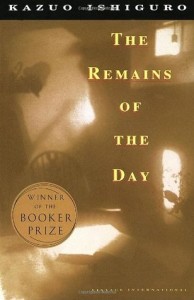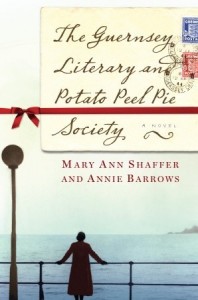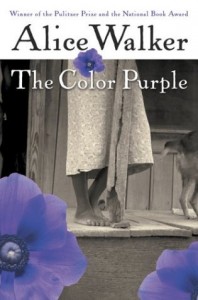 The Remains of the Day by Kazuo Ishiguro
The Remains of the Day by Kazuo Ishiguro
Publisher: Vintage Books
Number of pages: 245
My copy: secondhand from our book club’s book swap — apparently, the original owner was Aldrin. Thank you, and thanks to Monique for passing the book to me. :)
The Remains of the Day is a profoundly compelling portrait of the perfect English butler and of his fading, insular world postwar England. At the end of his three decades of service at Darlington Hall, Stevens embarks on a country drive, during which he looks back over his career to reassure himself that he has served humanity by serving “a great gentleman.†But lurking in his memory are doubts about the true nature of Lord Darlington’s “greatness†and graver doubts about his own faith in the man he served.
* * *
It’s a rare occurrence nowadays when I actually review a book I just finished reading. Usually it takes me a few days weeks to write one, but since this is up for discussion for our book club this weekend, I thought I’d try something new and actually write a review soon after I finished the book.
The Remains of the Day by Kazuo Ishiguro is the story about a butler. Stevens has been a butler for Darlington Hall for almost all his life, working for the “great” Lord Darlington and later for an American gentleman, Mr. Farraday, who bought the big house soon after Lord Darlington passed away. When his American employer told him to go take a vacation while he is away, Stevens sets off on a motoring trip to meet an old colleague, Miss Kenton, with the pretense of asking her to work for them again to correct some certain staffing errors in Darlington Hall. As with every road motoring trip done in solitude, Stevens thinks of his experiences and subtly questions the things he knew about his old employer and his own affections for a certain co-worker.
Hindsight is 20/20. That’s a popular quote that I never really understood until I started thinking about things more often than usual, and I wish it wasn’t always the case — the thinking and how hindsight can be 20/20, I mean. Sometimes I wish we could make better decisions when we need to, and not regret things in the end when we realize how we could have done better and we should have done this. That’s one of the things I remembered while reading The Remains of the Day. Stevens is an interesting character, not quite like Kathy H from Never Let Me Go, but also the same in how they reminisce the past. Of course, Stevens is older, so he has more experience so to speak, but can I be honest? Sometimes I have to admit that the experience he shares can be quite…boring. Maybe it’s because I can’t exactly relate to him. Or maybe because we have a kind of generation gap. It was interesting to see what he thinks of dignity and what he thinks of his employer, and how he tells of tales from when he served him. He didn’t question it back then, and even as he related his stories he never questioned it either — but there was that subtle doubt that made me wonder if he thought if he could do anything about it, or if he should do anything, given that he was just a butler. Does he have the power to do it? Can he even say anything about it, especially since he believes that his employer is a good man? To put it in a better and more personal context: I’m an employee of a multinational company, one of thousands in this country. Do my decisions count? Can my voice be heard amongst all the executives? Do I have a right to say something if I notice something is amiss? Or will I even notice that? And finally, if I do that, will I even matter?
I don’t want to be a fool wondering what might have been. Trivia: in college, I used to like that song. :P As with Never Let Me Go, there’s a certain romantic aspect in The Remains of the Day, too. Miss Kenton was one of the characters that Stevens kept on talking about, and I found his interactions with her both annoying and hilarious. To say more would be spoilery, but I had to laugh at their interactions because they seem to be beating around the bush and making excuses about their conversations. It goes to show that even someone as “dignified” and knowledgeable (in his own right) as Mr. Stevens can know nothing about how women are — but maybe it’s because it was his choice. I can’t blame him too much, though. He made his choice, even if he didn’t know it, which forced Miss Kenton to make her own, leading them to where they both ended up in the end.
There’s no time for my regrets. One of our pre-work for the book discussion this weekend is to write a piece that talks about love, loss, hope, and/or regret. When I was writing my piece, I realized one thing: it was easy to remember tales of love and hope, but not of loss and regret. Perhaps it’s because I don’t have any tales of loss and regret (thank God for that). I figure that is true for loss, but for regret, I’d like to think it’s because I’ve long told myself that I choose not to regret over anything. Maybe that’s me being positive, but I have always believed that mistakes are made for learning and there’s always a higher purpose to why things happened, and regrets will just bog you down. I guess what matters is how we should be aware of our choices so we won’t have to think of regrets in the future.Yes, hindsight is 20/20, and we won’t really know if we chose the right thing later on. But like I said, maybe all we need to do is to trust that things will be okay, eventually, and that despite making wrong choices, we always have a choice on how we shall see our life after that.
The Remains of the Day is my second Ishiguro, and I’m glad that it still has that quiet, calm writing, one that I really needed after reading several high-action zombie books. I really loved my first Ishiguro, so I had high expectations for this one which I am glad was met. It’s not quite as amazing as Never Let Me Go, IMO, but it’s a good book that makes you think about life, just as how I did in this review, I think! :) This will definitely not be my last Ishiguro book.
Also, you know what, maybe I will reread this a few years later, to see if I still think of the book the same way as I do now.
Rating: [rating=4]

Other reviews:
Book Rhapsody
Bookish Little Me (reread)
reading is the ultimate aphrodisiac
 Continue Reading →
Continue Reading →



